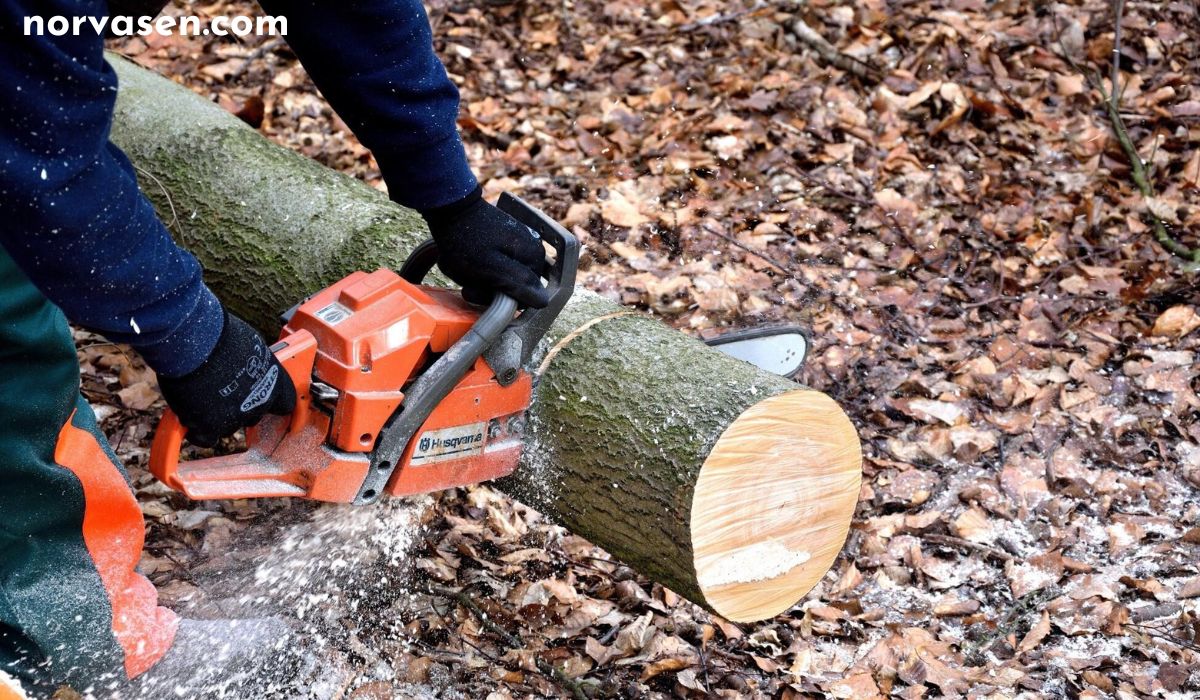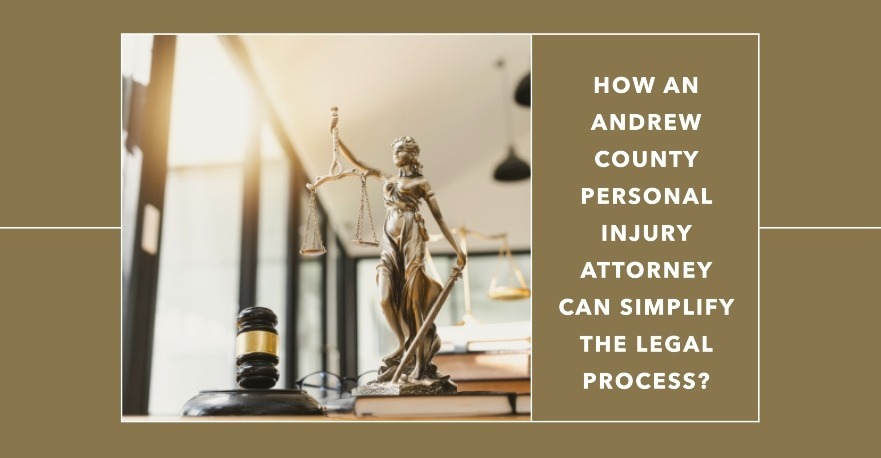Tech
The Benefits of AI-Powered Tools for Contact Centers

Artificial intelligence is rapidly transforming the landscape of customer service and support. In the bustling hubs of contact centers, AI is no longer a futuristic concept but an essential tool for managing high volumes of customer interactions. With advances in machine learning and natural language processing, contact centers are now equipped to deliver a level of service that meets the increasing demands of modern consumers. AI-powered tools facilitate personalized, efficient, and more engaging customer experiences. Below, we explore the manifold advantages these technological innovations offer to contact centers.
Harnessing AI to Enhance Customer Engagement in Contact Centers
The advent of AI-powered tools for contact centers has revolutionized customer engagement strategies. These intelligent chatbots and virtual assistants offer round-the-clock assistance, providing instant responses to common inquiries. By continuously learning from interactions, they deliver increasingly sophisticated solutions, enhancing customer satisfaction and loyalty.
These tools can manage multiple conversations simultaneously, reducing wait times and improving service speeds. Through personalized experiences derived from customer data analysis, AI bridges the gap between human-like interaction and automated support, fundamentally transforming the customer service landscape.
The Role of AI in Streamlining Contact Center Operations
AI plays a pivotal role in enhancing operational efficiency in contact centers through various means. By accurately predicting call volumes and customer inquiries, AI enables better resource allocation, leading to more prepared agents and reduced costs.
Automated workflows streamline routine tasks, allowing human agents to focus on more complex activities, boosting morale, and reducing turnover. AI’s precision reduces errors, improving service quality, while expediting back-office processes like after-call work, resulting in faster issue resolution and increased customer satisfaction.
AI-Powered Analytics for Improved Customer Insights
AI-powered data analytics revolutionizes customer service by offering deep insights into customer behaviors and preferences. By analyzing vast amounts of data in real time, AI algorithms detect trends, sentiment, and satisfaction levels, enabling contact centers to dynamically adjust strategies to better serve customers.
AI helps contact centers evaluate and improve their performance by pinpointing areas needing enhancement, such as communication styles and response times. Predictive analytics anticipates customer needs, allowing for proactive issue resolution. AI synthesizes information across communication channels to provide a comprehensive view of the customer journey, ensuring consistency and seamless experiences.
Boosting Agent Performance with AI Tools

AI plays a crucial role in enhancing agent performance within contact centers. Through real-time coaching tools, agents receive immediate feedback to refine their skills, resulting in improved customer service quality. Virtual assistants support agents by providing quick access to information, aiding in faster query resolution.
This collaborative relationship between AI and humans fosters a more efficient work environment and boosts morale among agents. Additionally, AI identifies and shares best practices from top-performing agents, ensuring a consistently high standard of service across the team.
Transforming Contact Center Costs with AI Efficiency
AI implementation in contact centers leads to significant cost savings by automating routine inquiries and tasks, allowing centers to handle higher volumes of customer interactions without needing to increase staffing levels proportionally. This reduction in operational expenses enables businesses to invest more in agent training and development or other areas of company growth. As AI takes on simpler tasks, agents can focus on upskilling, contributing even more value to the company.
AI helps reduce error rates, leading to cost savings by minimizing the resources required for error correction. With AI-supported analytics, contact centers can identify efficient approaches and strategies, further optimizing operations and reducing expenses. AI boosts productivity, allowing contact centers to scale up their capabilities without compromising quality, which is essential for meeting market demands or seasonal peaks.
Altogether, AI-driven tools offer a revolutionary chance for contact centers to elevate both customer service and operational efficiency. By providing agents with advanced resources, cutting costs, and enriching customer interactions, AI cultivates an environment conducive to mutual success for businesses and customers.
Tech
Exploring the Different Types of Pistol Brass: Which is Best for You?

Have you ever wondered how the type of pistol brass you choose can impact your shooting experience?
With so many options available, picking the right brass can feel overwhelming. Whether you’re a seasoned shooter or just starting out, understanding the differences in pistol brass is essential for improving accuracy, performance, and reloading efficiency.
In this article, we’ll break down the various types of the top reloading brass, helping you make an informed decision for your next purchase and ensuring you get the most out of your shooting sessions.
Full Metal Jacket (FMJ)
Full Metal Jacket (FMJ) bullets are one of the most common types of ammunition used in shooting. They consist of a soft lead core encased in a harder metal shell, usually copper. This design helps the bullet maintain its shape during flight and when it impacts a target.
FMJ bullets are often preferred for target shooting and training due to their reliability and increased feed efficiency in semi-automatic pistols. However, they may not expand upon impact, limiting their effectiveness for self-defense situations. If you’re using a 5.7 x28 brass caliber, FMJ brass can provide consistent performance and accuracy.
Hollow Point (HP)
The purpose of Hollow Point (HP) bullets is clear: to grow when they hit something. This growth makes a bigger wound path, which can make the bullet more effective at stopping. Because it can stop a danger more quickly than other types of bullets, Hollow Point ammo is frequently used in self-defense situations.
Hollow Point bullets work well for self-defense, but they might not be the best choice for practicing shooting at targets. They usually cost more than Full Metal Jacket bullets, which makes them less cost-effective for daily training.
Soft Point (SP)
The core of a Soft Point (SP) bullet is made of soft lead, which can be seen on the tip. Like a Hollow Point, this design lets the bullet spread when it hits something, but it does so in a different way. A lot of people use Soft Point ammo for hunting and sport shooting because it can make a big wound opening and still go deeper than Hollow Point bullets.
Soft Point bullets do a good job of expanding, but they aren’t usually the best choice for self-defense. If you want a bullet that works well in a lot of different scenarios, these might be a good choice.
Ballistic Tip
Ballistic Tip (BT) bullets have a polymer tip that makes them more efficient. This makes them more accurate and stable while they’re in the air. Like a Hollow Point bullet, this tip often helps the bullet start to expand when it hits something. Ballistic Tip ammo is often used for shooting because it has a high speed and transfers energy well, making sure a clean kill quickly.
These bullets are made to work well at different ranges, so you can use them in a variety of shooting settings. Ballistic Tip bullets work well for shooting, but because of how they are made, they might not be the best choice for self-defense.
Jacketed Hollow Point (JHP)
Bullets with a Jacketed Hollow Point (JHP) design have parts of both Full Metal Jacket and Hollow Point designs. They have a heart of lead and a jacket of metal around it. The metal helps them penetrate better while still letting them expand when they hit something. Because of how it’s made, JHP ammo can be used for self-defense because it’s meant to stop without going too deep.
JHP bullets are popular with both police and people who want to protect themselves. For defense, they are often used because they are solid in guns and work well when it comes to expanding.
Copper Plated
Copper Plated bullets have a core of lead that is covered in copper. This copper covering protects better against barrel wear and fouling, which can happen when you shoot. In semi-automatic handguns, the finish on the surface also makes it easier for the bullets to feed.
People often use these bullets for target shooting and some competitive shooting situations. In addition to dependable performance, they make shots easier and cleaner.
Lead
Lead bullets are made entirely from lead, a heavy and malleable metal. They are commonly used for target shooting and training purposes. Lead ammunition is cost-effective and offers a variety of shapes for different shooting needs.
However, lead bullets can leave residue in the firearm’s barrel, leading to increased cleaning requirements. Additionally, some shooting ranges may have restrictions on the use of lead due to environmental concerns.
Frangible
Frangible bullets are designed to break apart upon impact with a target. This design minimizes the risk of over-penetration, making them safer for use in training environments and law enforcement scenarios. They are often made from compressed materials that disintegrate on impact, providing a controlled performance.
Frangible ammunition is typically used in indoor ranges and situations where ricochet risks must be reduced. Their ability to fragment into small pieces helps to enhance safety for both shooters and bystanders.
Steel
Steel bullets are often used in specific shooting applications due to their durability and cost-effectiveness. These bullets provide good performance in various scenarios, particularly when a lower-cost option is needed. They are typically heavier than other bullet types and can penetrate targets effectively.
However, using steel bullets may require caution as they can lead to increased wear on the firearm’s barrel. Some shooting ranges have restrictions on steel ammunition because it can be more damaging compared to lead or copper-plated options.
Nickel-Plated
Nickel-plated bullets have a small layer of nickel on them, which helps shooters in a number of ways. This coating helps cut down on friction while firing, which makes the bullets in semi-automatic handguns more reliable.
It’s possible to use these bullets for both target shooting and self-defense. Nickel-plated ammo is liked by many shooters because it doesn’t foul as easily and feeds smoothly.
Pistol Brass Unveiled Find the Best Fit for Your Firearm
In conclusion, selecting the right pistol brass is crucial for enhancing your shooting experience. Each type of ammunition serves its unique purpose, whether for training, hunting, or personal defense.
Understanding the differences will help you make informed decisions based on your specific needs. By matching your reloading supplies to your shooting style, you can improve accuracy, performance, and ultimately enjoy your time at the range or in the field even more.
We hope this article was helpful to you. If you enjoyed it, be sure to check out our blog for more valuable information and resources.
Tech
Breaking Down the Different Types of Chainsaw Accessories and Their Uses

Chainsaws are powerful tools essential for a variety of tasks, from cutting firewood to felling trees. But to get the most out of your chainsaw, you need the right accessories.
Whether you’re a professional lumberjack or a weekend warrior, understanding the different types of chainsaw accessories and their uses can help you work more efficiently and safely.
Chainsaw Bars and Chains
Chainsaw bars and chains are crucial components of your chainsaw. The bar is the metal arm that guides the chain as it cuts through wood. Chainsaw bars come in various lengths, which can affect how deep or wide you can cut. The chain itself is made up of sharp teeth that slice through the material.
Different types of chains are designed for specific tasks, such as pruning or felling trees. Using the right combination of chainsaw bars and chains can improve your cutting performance and make your job easier. It is important to regularly check and maintain these parts for safety and efficiency.
Chain Sharpeners
Chain sharpeners are vital accessory types that help keep your chainsaw cutting efficiently. A dull chain can slow you down and make cutting more difficult. Chain sharpeners come in various forms, including manual files, electric sharpeners, and guide tools.
Using a sharpener is simple and can extend the life of your chainsaw chain. Regularly sharpening your chain will not only enhance your cutting performance but also ensure safer operation. Make it a habit to check your chain’s sharpness before starting any job to get the best results.
Safety Gear
Safety gear is essential when using a chainsaw. It protects you from injuries that can happen while cutting. Key items include a hard hat, goggles, ear protection, and gloves. These pieces of equipment help shield your head, eyes, ears, and hands from sawdust and flying debris.
Additionally, wearing chainsaw chaps can protect your legs from accidental cuts. It’s important to invest in high-quality safety gear to stay safe while working. Remember, the right safety equipment is just as important as tool enhancements for your chainsaw. Always check your gear before you start cutting to ensure you are fully protected.
Chainsaw Cases and Bags
Chainsaw cases and bags are important for protecting your equipment. They help keep your chainsaw safe during storage and transport. A good case prevents damage from bumps and moisture. It also keeps your tools organized and easily accessible.
Many cases offer extra pockets for storing accessories, like chains and sharpeners. When choosing a case or bag, look for durable materials that can withstand wear and tear.
This investment will help extend the life of your chainsaw and make carrying it easier. Always store your chainsaw in its case when you’re not using it to keep it in top condition.
Chainsaw Oils
Chainsaw oils are essential for keeping your tool running smoothly. They help lubricate the chain and bar, reducing friction during operation. Using the right oil prevents overheating and wear on your chainsaw parts.
It is important to choose oils specifically designed for chainsaws, as they provide the best performance. Always check your oil level before starting work to ensure proper lubrication and efficiency.
Learn All About Chainsaw Accessories
In conclusion, having the right chainsaw accessories helps a lot. They make your work easier and safer. Make sure you have good bars, chains, and sharpeners. Always wear safety gear to protect yourself.
Store your chainsaw in a case to keep it safe. Taking care of your tools helps them last longer. With the right accessories and care, you can do your cutting tasks well.
Tech
How an Andrew County Personal Injury Attorney Can Simplify the Legal Process?

An Andrew County personal injury attorney can simplify the complex legal process by protecting your rights, negotiating with insurance companies on your behalf, thoroughly gathering critical evidence, and providing skilled representation in court. They’ll handle the tedious paperwork, legal filings, and negotiations to maximize the compensation you recover for your injuries and losses.
With an attorney guiding you, you can focus on your recovery while they work tirelessly to guarantee you receive the full compensation you’re entitled to under the law. To learn more about how an attorney can help with your specific case, continue reading.
Key Takeaways
- Navigating the complex legal procedures and paperwork on behalf of the client.
- Handling communication and negotiations with insurance companies to maximize compensation.
- Gathering and organizing all necessary evidence and documentation to build a strong case.
- Providing knowledgeable guidance through each step of the legal process.
- Advocating aggressively in court proceedings to ensure the client’s rights are protected.
Understanding Your Legal Rights
As an individual who’s suffered a personal injury, it’s crucial to understand your legal rights. You have the right to seek compensation for any damages or losses you’ve incurred due to the negligent actions of another party. This includes medical expenses, lost wages, pain and suffering, and any other financial or emotional burdens you’ve faced as a result of the incident.
By working with an experienced Andrew County personal injury attorney, you can ensure that your rights are protected and that you receive the full compensation you’re entitled to. Your attorney will thoroughly investigate the accident, gather evidence, and negotiate with insurance companies on your behalf to secure the best possible outcome for your case.
Don’t let the complexities of the legal system deter you from seeking justice. With the appropriate legal representation, you can navigate the process with confidence and focus on your recovery, while your attorney handles the legal matters on your behalf.
Navigating Insurance Company Negotiations
When dealing with insurance companies after a personal injury, you’ll need to navigate the negotiation process carefully. Insurance adjusters may try to minimize your claim or pressure you into accepting a settlement that doesn’t fully cover your losses. That’s why working with an experienced Andrew County personal injury attorney is so important.
Your attorney will handle all communication with the insurance company on your behalf, ensuring your rights are protected. They’ll review the details of your case, gather evidence, and calculate the full extent of your damages, including medical expenses, lost wages, and pain and suffering.
With your attorney’s guidance, you can negotiate effectively to secure a fair settlement that covers all your needs.
Your attorney will also be prepared to take your case to court if the insurance company refuses to offer a reasonable settlement. This can give you the leverage you need to get the compensation you deserve.
Don’t face the insurance companies alone – let an experienced personal injury lawyer simplify the process and fight for your rights.
Gathering Necessary Evidence and Documentation
In order to build a strong personal injury case, you’ll need to gather essential evidence and documentation from the start. This includes obtaining copies of medical records, bills, and receipts related to your injuries and treatment. You should also collect any police reports, witness statements, or other documentation that could support your claim.
Documenting the full extent of your injuries and the associated costs is vital. This means tracking all your medical expenses, including those for doctor visits, hospital stays, rehabilitation, and any assistive devices you may have needed. Gathering this paperwork can be time-consuming, but it’s necessary to demonstrate the impact of the accident on your life.
Your personal injury attorney can help you navigate this process and ensure you have all the necessary information to build a compelling case. They’ll know what evidence is most important and how to obtain it efficiently. With their guidance, you can focus on your recovery while they handle the legal complexities on your behalf.
Representing You in Court Proceedings
Your personal injury attorney will represent you throughout the court proceedings, ensuring your rights are protected and your case is presented effectively. They’ll handle all the legal filings, negotiations, and courtroom arguments on your behalf, allowing you to focus on your recovery.
Your attorney will work closely with you to develop a strong legal strategy, drawing on their expertise and experience to build a compelling case. They’ll gather and present all relevant evidence, question witnesses, and challenge any opposing arguments. Their goal is to secure the maximum compensation you’re entitled to for your injuries, lost wages, and other damages.
Throughout the court process, your attorney will keep you informed every step of the way, explaining the proceedings and guiding you through any decisions that need to be made. They’ll negotiate with the insurance company or opposing party on your behalf, endeavoring to reach a favorable settlement if possible.
If the case goes to trial, you can count on your attorney to provide skilled and zealous representation in the courtroom.
Maximizing Your Compensation Recovery
Securing the utmost compensation you deserve is a top priority for your personal injury attorney. They’ll meticulously document all your losses, from medical expenses and lost wages to pain and suffering, to build a strong case for the full extent of your damages.
With their deep understanding of personal injury law, they’ll negotiate aggressively with the insurance company to guarantee you receive the maximum settlement possible.
They won’t settle for anything less than what you’re rightfully owed. Your attorney will work tirelessly to maximize your recovery, leveraging their expertise to overcome any attempts by the insurance company to lowball or deny your claim.
They’ll handle all the complex legal paperwork and negotiations, so you can focus on your recovery while they fight to get you the compensation you need to move forward.
With your personal injury attorney in your corner, you can rest assured that your financial well-being is their highest priority.
Conclusion
When you work with an Andrew County personal injury attorney, they’ll simplify the legal process by handling all the complex paperwork and negotiations on your behalf. For instance, after a car accident, your attorney will gather the necessary evidence, deal with the insurance companies, and represent you in court to guarantee you receive the maximum compensation you’re entitled to. With their expertise, you can focus on your recovery while they fight for your rights.
-

 Tech5 months ago
Tech5 months agoExploring the Features of Innocams: The Future of Security
-

 Home Improvement3 months ago
Home Improvement3 months agoEco-Friendly Round Rug Options for Sustainable Living in NZ
-

 How-To Guides2 months ago
How-To Guides2 months agoComprehensive Guide to Cockwarming: Enhancing Intimacy and Connection
-

 Fashion3 months ago
Fashion3 months agoBlack Magic: The Elegance and Sophistication of Ultimate Homecoming Dresses in Black
-

 Apps and Games3 months ago
Apps and Games3 months agoDiscover Tickzoo: The Ultimate Platform for Video Content Lovers and Creators
-

 Business5 months ago
Business5 months agoUnlock Potential: Explore Pikruos Services
-

 Blog3 weeks ago
Blog3 weeks agoPossiblyethereal: Exploring the Ethereal Unveiling Abstract Ideas
-

 Entertainment4 months ago
Entertainment4 months agoDiving into the Audio-Visual Experience with AV Tub: Innovating Our World of Media
















